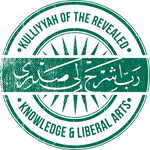Kulliyyah’s Statement of Knowledge
‘There is no question but today, of all civilizations on this planet, science is weakest in the lands of Islam. The dangers of this weakness cannot be over-emphasized since honorable survival of a society depends directly on its strength in science and technology in the condition of the present age. ‘(Professor Mohammed Abdus Salam, Nobel Laureate Physicist; 1990)
Tawhid or the doctrine of absolute unity, transcendence and ultimacy of Allah SWT is the basis of Islamic theology. It implies the unity of Allah SWT -the Creator, unity of creation and unity of truth and knowledge. Reality is of two generic kinds, God and non-God, Creator and creature. The first order has but one member, Allah SWT, the Absolute and Almighty. He alone is God, Eternal, Creator, Transcendent. Nothing is like unto Him, He remains forever absolutely unique and devoid of partners or associates. The second is the order of space-time, of experience, of creation. It includes all creatures, the world of things, plants and animals, humans, jinn and angels, heaven and earth, paradise and hell and all their becoming since they came into being. The two orders of Creator and creation are utterly and absolutely disparate as far as their being, or ontology and existence and careers are concerned (Ismail Faruqi, 1986:94).

The world has not been created in vain, or in sport (Al Qur’an 3:191; 23:116). It is not the work of chance, a happenstance but created by Allah SWT. It was created in perfect condition. Everything that exists does so in a measure proper to it and fulfils a certain universal purpose (Al Qur’an 7;15; 10:5;13:9;15:29;25:2). The world is indeed a ‘cosmos’, an orderly creation, not a ‘chaos’. In it, the will of the Creator is always realized. His patterns are fulfilled with the necessity of natural law, for they are innate in the very nature of things. No creature other than man acts or exists in a way other than what the Creator has ordained for it (Al Qur’an,17;77; 33:62; 35:43; 48:23; 65:3). Man is the only creature in whom the will of Allah SWT is actualized, not necessarily, but with man’s own personal consent. Hence, he is responsible and accountable.
- There is the inseparability of knowledge from Allah SWT. It means that since Allah SWT is All-knowing and Omniscient, He is the root of all knowledge.
- Whatever form of knowledge is possessed or acquired by humanity, it is definitely vouchsafed to it by Allah SWT. It should never be seen as purely a product of human independent effort and endeavor. Hence, no aspect of knowledge should be separated from Him.
- Knowledge and truth are interwoven; the essence of knowledge is to lead to truth, and nothing but the truth. Since Allah SWT is the Absolute and Ultimate Truth, knowledge should lead humanity to Allah SWT. Any knowledge which does not lead to the truth is not in the real sense a sound knowledge but a mere misconception.
- There is a relationship between knowledge, action, spirituality and morality. In Islam the essence of knowledge is good deeds and righteousness. In a number of verses in the noble Qur’an and Hadith, the emphasis has been on combining knowledge with good deeds and piety (Imam Nawawi, 1974:232-233).
Islamically, the main sources of human knowledge are the two ‘revelations’, namely; the scriptures and the natural phenomena. Hence, the early Muslims (Salaf) had an integrated worldview, that is, no dichotomy between the spiritual and the physical (phenomena), if properly understood and interpreted. Indeed, the phenomenal world is to be studied with a view to understanding its ingrained nature, purpose and use, on the one hand, and for better appreciation of the Creator-Allah SWT and His worship, on the other.

There is an interface between religion (Islam) and science because the knowledge of both are derived from ‘revelation’ from Allah SWT. Religion is based on the revealed word of Allah SWT, while science studies the phenomenal world as a result of which Allah SWT revealed the nature, purpose and use of His creation (i.e., phenomenal world) to the scientists. Science is considered as language of fact which leads to discoveries, while religion is the language of value which deals with evaluation of human thought and action. Islam and science are not two separate entities that need to be related through an external process; rather, there is an underlying unity in the domains of knowledge based on the concept of Tawhid (Unity of God) – the most fundamental principle of Islamic epistemology.
